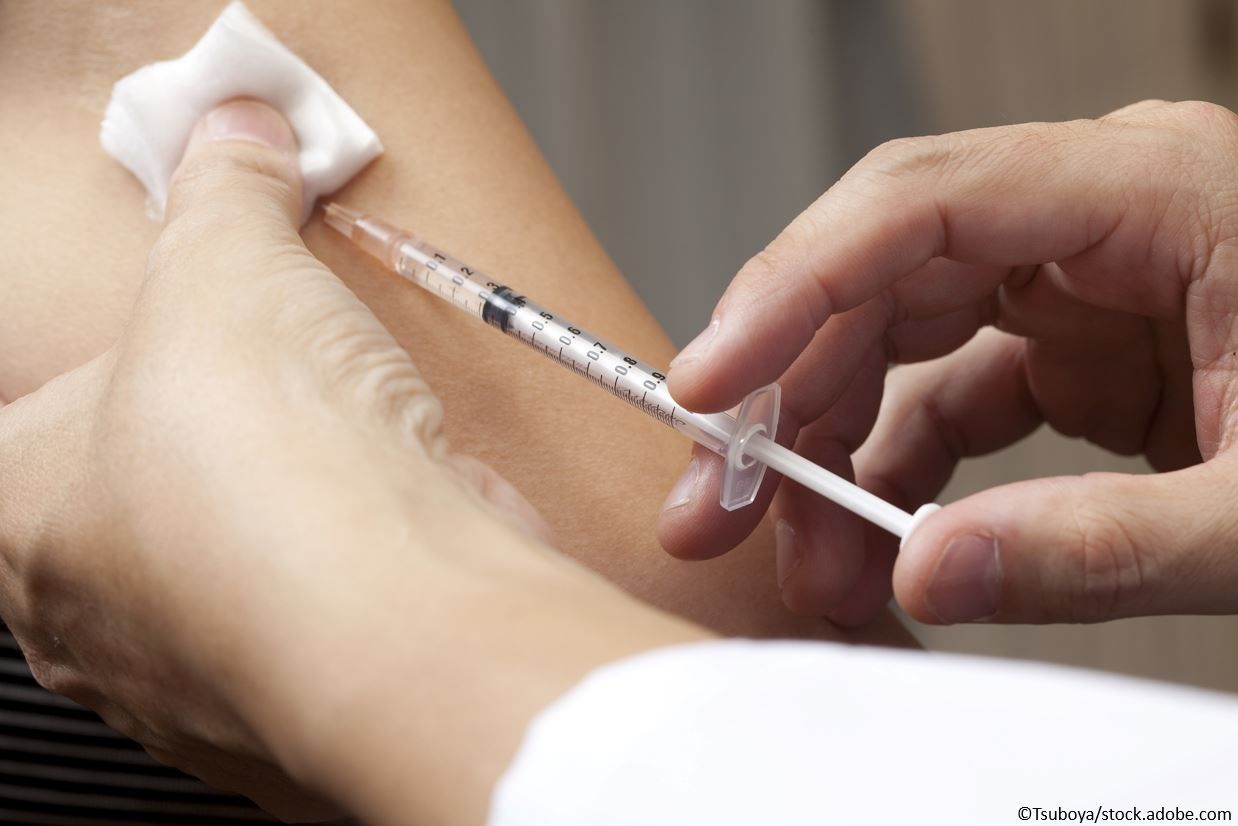- Clinical Technology
- Adult Immunization
- Hepatology
- Pediatric Immunization
- Screening
- Psychiatry
- Allergy
- Women's Health
- Cardiology
- Pediatrics
- Dermatology
- Endocrinology
- Pain Management
- Gastroenterology
- Infectious Disease
- Obesity Medicine
- Rheumatology
- Nephrology
- Neurology
- Pulmonology
Influenza Vaccine Education in Emergency Departments Improves Uptake, According to New Study
Investigators found vaccine uptake of 41% among unvaccinated individuals who were part of a messaging intervention in the emergency department.

Use of an influenza vaccine messaging platform in emergency departments increased 30-day vaccine uptake among unvaccinated individuals, according to new research published in NEJM Evidence.1
Between October 2022 and February 2023, investigators found vaccine uptake of 41% among participants who were asked about influenza vaccination and given a video, flier, and scripted message from their clinician. They also noted uptake of 32% among participants who were asked about vaccination but did not receive any other messaging.1
“Overall, our study adds to the growing body of knowledge showing that a number of important public health interventions can and should be delivered to underserved populations in emergency departments,” said first author Robert M. Rodriguez, MD, professor of emergency medicine, University of California San Francisco School of Medicine, in a press release.2
Influenza vaccination is low among underserved populations whose primary care occurs in emergency departments, according to Rodriguez and colleagues.1
“This research arose from our desire to address the health disparities that we see every day in our emergency department, especially among homeless persons, the uninsured and immigrant populations,” stated Rodriguez in the press statement.2
Investigators conducted the prospective, cluster-randomized controlled trial to compare the following 2 interventions with a control group (usual care/no interventions)1:
- Intervention M: Influenza vaccine messaging platform consisting of a brief video, flyer, and a scripted health provider question, “Would you be willing to accept the influenza vaccine?” If participants indicated vaccine acceptance, a notification was sent to their provider.
- Intervention Q: No messaging but did include the vaccine question and provider notification.
In intervention M, the video and flier featured physicians and personnel who matched the racial and ethnic characteristics of the participant.1
“The primary outcome was receipt of an influenza vaccine at 30 days ascertained by electronic health record review and telephone follow-up, comparing the Intervention M group with the control group,” noted researchers.1
Secondary outcomes included comparisons of 30-day vaccine uptake in intervention Q vs control and intervention M vs intervention Q, according to the study.1
A total of 767 participants (mean age, 46 years; 46% women) were enrolled at 6 emergency departments in 5 US cities between October 2022 and February 2023. Among the cohort, 32% lacked primary care, 16% lacked health insurance, 36% were Black, and 21% were Latinx.1
Researchers observed that the intervention M, intervention Q and control groups had 30-day vaccine uptakes of 41%, 32%, and 15%, respectively.When intervention M was compared with intervention Q, the adjusted difference in 30-day vaccine uptake was 8.7% (95% CI, –0.1%-17.6%).1
“The fact that simply mentioning vaccination had such a positive impact on future vaccination rates among our sample is incredible, and makes a strong case for incorporating vaccine messaging into emergency department workflows,” said coauthor Efrat Kean, MD, of the Department of Emergency Medicine at Thomas Jefferson University in Philadelphia, in a university press release.3
References:
- Rodriguez RM, Eucker SA, Rafique Z, et al. Promotion of influenza vaccination in the emergency department. NEJM Evid. Published online March 26, 2024. doi:10.1056/EVIDoa2300197
- Just ask: Patients in the ER are willing to get a flu shot. News release. Elizabeth Fernandez. March 26, 2024. Accessed March 29, 2024. https://www.ucsf.edu/news/2024/03/427321/just-ask-patients-er-are-willing-get-flu-shot
- Flu-vaccine education in the emergency department helps people get their shot. News release. Thomas Jefferson University. March 26, 2024. Accessed March 29, 2024. https://www.jefferson.edu/about/news-and-events/2024/03/flu-vaccine-education-in-the-emergency-department-helps-people-get-their-shot.html
